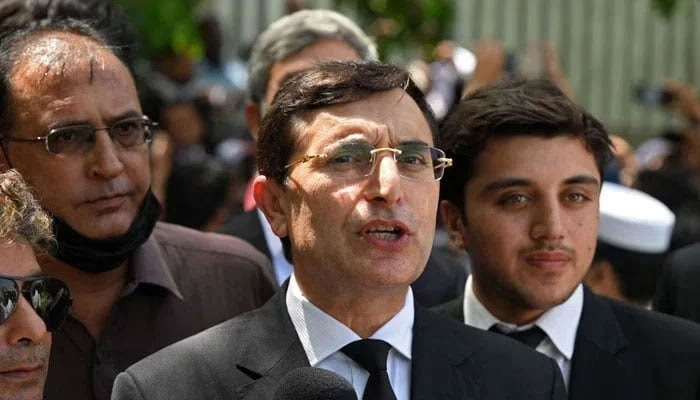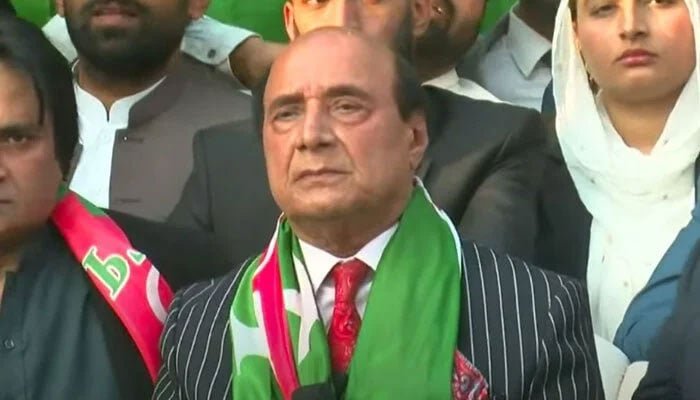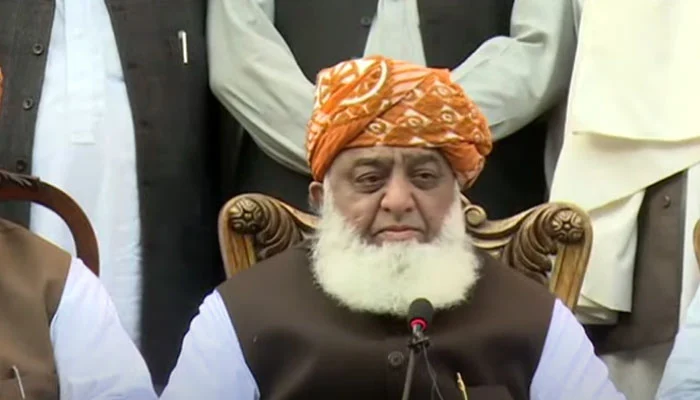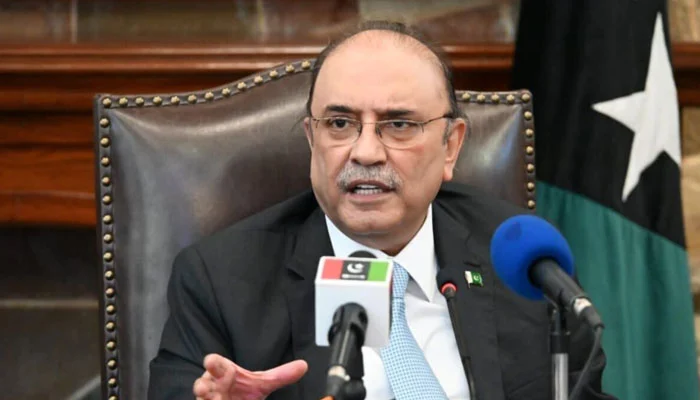In a dramatic development shaking Pakistan’s political landscape, the Pakistan Tehreek-e-Insaf (PTI) on Friday categorically rejected the Supreme Court’s verdict denying it access to reserved seats in national and provincial assemblies, branding the decision unjust and a misinterpretation of the Constitution.
The verdict was handed down by a 10-member constitutional bench of the Supreme Court, headed by Justice Aminuddin Khan, which accepted a series of review petitions. The bench ruled that PTI, the party founded by Imran Khan, was not entitled to seats reserved for women and minorities — a move seen as a significant setback for the embattled party.
A Grave Misjudgment: PTI Reacts with Fury
Reacting strongly, PTI Chairman Barrister Gohar Ali Khan expressed deep disappointment over the ruling in an interview with Geo News:
We are deeply disappointed. This decision is unfair and clearly reflects a misreading of the Constitution. The reserved seats rightfully belonged to PTI.
Barrister Gohar noted that since this was a review judgment by the apex court, no further legal appeal is possible. We cannot take this matter to any other court,” he said. However, he pledged that the party would not stay silent:We will raise this issue within Parliament and outside it as well.
PTI’s Official Statement: A Day of Constitutional Darkness
In a strongly-worded official statement, PTI called the ruling the darkest day in the country’s constitutional history. The party highlighted that the very Supreme Court had earlier recognized PTI’s constitutional entitlement to reserved seats — a decision the party views as grounded in justice and legality.
That was a time when the court announced a decision by the Constitution. Today’s ruling contradicts that precedent and undermines democratic principles, the statement read.
The party also claimed the verdict would set a dangerous precedent, where popular mandates could be altered through judicial interpretation, diminishing the value of public votes.
Background of the Verdict
The issue of reserved seats emerged following the 2024 general elections, where PTI-backed independent candidates had secured a significant number of seats. However, the Election Commission ruled that since PTI contested the election as independents after losing its election symbol, the party was ineligible to claim proportional reserved seats — a decision now upheld by the Supreme Court.
Reserved seats for women and minorities are allocated based on party performance on general seats. Since PTI-backed candidates did not contest under a single party symbol, the legal technicality became the pivot of the constitutional debate.
The court sided with the interpretation that PTI, lacking official party status at the time of elections, could not benefit from proportional representation rules.
Political Fallout and What’s Next
PTI leaders and supporters view this as yet another blow in a series of legal and political challenges faced by the party since Imran Khan’s ouster. They argue that the decision effectively silences the largest political group in Parliament, particularly women and minority voices that would have represented PTI.
Legal experts are now debating the long-term implications of the verdict. While the Supreme Court’s judgment is final and binding, questions are being raised about the future of electoral representation, party rights, and judicial overreach in political matters.
Meanwhile, political observers predict increased tension within Parliament, as PTI is expected to take an aggressive stance in protest — both on the floor and in public demonstrations.
As Pakistan navigates a fragile political climate, this ruling may further deepen public mistrust in institutional fairness and exacerbate political polarization. The PTI leadership has vowed not to let the issue rest, indicating that a new phase of resistance and activism could be on the horizon.



